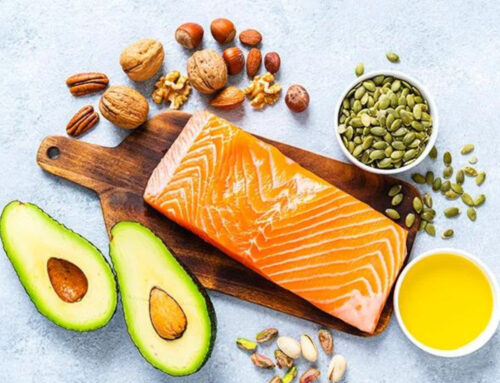As you all know, I am a huge fan of fasting and the ketogenic lifestyle.
Not only do I love fasting because of the results I’ve witnessed first hand, but the science on fasting continues to prove that it may be the next miracle cure for whatever ails the human body.
In my Resetter Tribe this week, there were several conversations about when NOT to fast. I think this is a great question, and one that hasn’t been properly addressed.
So, let’s talk about that today. Whether it’s a 5-day water fast or daily intermittent fasting, when should you skip fasting?
There are three different scenarios where you need think about skipping the fast.
1. Extreme adrenal fatigue
Fasting is hard on the body. That’s actually the reason to do it. Fasting puts your body in a stressed state so that it adapts. Sounds crazy, right? Why would anyone fast if it stresses your body?
Here’s a mind bending though for you: your body thrives under stress.
But it’s important to note that we’re talking about episodic stress here rather than constant, unrelenting stress. When you place new, temporary stressors on your body, it will adapt in an incredibly beneficial way.
Think about it. Have you had more positive growth moments in your life when things were easy for you? Or did you get more dramatic results when things were difficult? I think we can all agree that the more difficult the life situation, the more personal growth we get out of it.
It’s the same for your body. When you fast, you tell your cells they need to rely on themselves. No food is coming in, so your cells get resourceful and start feasting on your toxins. This is the beauty of fasting!
But if you have been under a tremendous amount of stress, totally worn down, and dragging yourself through the day, your body may not adapt well to fasting. I wrote a recent blog post about everything that’s involved with adrenal fatigue, so go check it out.
In that post, I talk about something called your HPA axis, which responds to stressors in your life. If that axis is malfunctioning, your body will struggle on a fast and you may even do more harm than good.
If this sounds like you, you’ll definitely want to think about getting a coach to guide you through a fast. I have seen fasting work wonders on people with a malfunctioning HPA axis, but you need a customized strategy.
How do you know if your adrenals are too fatigued to fast?
The classic sign I see with my patients is they start feeling a strong racing heart when they fast. Now, before you all give up fasting because this is what happens to you, let me explain myself.
When people first start fasting, it’s very common to have a strong beating heart. My first solution for this problem is to drink some water with sea salt, as your racing heart is most likely caused by an electrolyte imbalance.
In fact, electrolyte imbalances are so common with fasting that when my patients go through longer block fasts, I have them take a mineral supplement.
If you notice that strong beating heart on a longer fasts, you can also try these techniques:
- eat some good fat like half an avocado
- mega dose an adrenal supplement
- stop the fast
There is a fast for everyone, including adrenal fatigued people. But it’s really important that you find the best fast to fit what your body needs.
2. Complicated health conditions
If you have a complicated health condition like cancer, diabetes, or an autoimmune condition, fasting can be miraculous for you! I highly encourage you to give it a try.
But there’s no doubt that the more complicated your health condition, the more guidance you will need as you go through a fast. If you don’t have someone experienced to guide you, I recommend you don’t fast.
This is especially true with block fasts, like a 5-day water fast. Everyone’s body is unique. Just because your friend went on a block fast and was flying high, doesn’t mean that will be your experience.
Fasting can kick you out of insulin resistance, repair worn out mitochondria, and detox your brain like nothing I’ve ever seen. The sicker you are, the more toxins have accumulated in your body. That means when you fast, you will have a stronger detox reaction. Detoxing can be a wild ride with lots of ups and downs. So having someone coach you through that process can be incredibly helpful.
3. The week before your menstrual cycle
This is very little-known fact about ketogenic living, fasting, and balancing hormones: you need to vary your carb intake and your fasting periods around your menstrual cycle.
I know this can be tricky, which is why I haven’t taught it in a public forum before. But it’s a tool I use with my patients and it’s important to understand if you want to make fasting a part of your ketogenic lifestyle.
Around day 13 of your menstrual cycle, you get an estrogen surge. It lasts around three days before it begins to plummet for ten days. During this time your progesterone levels will remain low.
Around day 23, both your estrogen and progesterone dramatically elevate in unison. You may notice this surge as mood changes, sleep changes, brain fog, tiredness, swollen hands and feet, or a bloated belly. At this time your body requires more carbohydrates to deal with these surging hormones. If you are following a strict ketogenic lifestyle, holding back the carbs, and intermittent fasting daily, you may notice that your PMS symptoms are worse since you started your keto journey.
I strongly recommend that you don’t do a 5-day water fast during this time. At any other time of the month, water fasts can be miraculous for healing hormone imbalances. At 48 years old I am actively working as many strategies as I can to balance my hormones with grace.
Fasting and ketogenic living has dramatically helped my hormonal balance. But timing my fasts and low carb days around my cycle has been a helpful strategy for me as well. I have also found heavy metal detoxing, resetting my microbiome, and implementing a variety of meditation and relaxation tools to be key to balancing my hormones.
I can’t emphasize enough how important it is to increase carbs and avoid fasting the week before your cycle. You will see a noticeable difference in your hormonal system, I promise!
So there you have it. These are the three parameters I put around restricting your fasting periods.
Hope that helps!
Keep resetting your health! I’m cheering you on!
Dr. Mindy









Thank You for the valuable info Dr.Mindy. This recommends not do fasting one week prior to the period but Is it recommended to do a fast during the period?
Yes, you can do any type of fasting from Day 1 to day 14 of your cycle.
Dr. Mindy explained it in this video https://youtu.be/Btys5cEswrw
Hi, firstly can I just say I love your energy. It’ so contagious :)
I had a question around fasting. I am trying to battle an autoimmune skin condition. If autophagy starts at approx 18 hours. But then you end your fast. (Does autophagy stop?) Then have you actually given your body the time to regenerate and the autophagy to do its work?
Having swelling in ankles and feet while fasting on keto. What can you recommend?
KDIR is one of our favorite supplements for swelling.
Is intermittent fasting ok near or during period?
Hello – I made the rookie mistake of doing a long fast – over 30 hours – the week before my period. Now my period did not come. I’m having cramps but no period. What can I do now to get my period to come or to get my hormones right?
I am over 70 and very healthy. I have fasted with no problems but I’m wondering if there is a different protocol for women in my age group. Thanks!